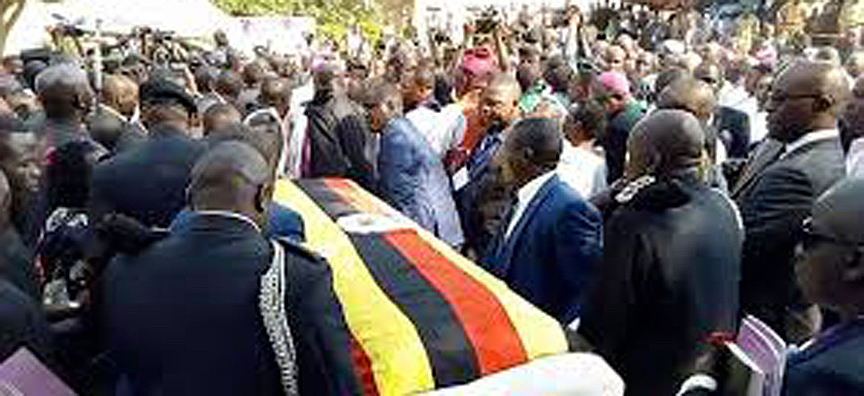
(The UCU Standard – Monday, January 15, 2018)
MUKONO, UGANDA ✦ It’s been with surprise and sadness that, recently returning for some teaching at UCU, I’ve returned at this time of Archbishop Livingstone Nkoyoyo’s passing.
Not that I knew Nkoyoyo, who, by all accounts, was among the most remarkable of Ugandans. Unlike many at UCU, knowing him was a privilege that was not mine.
I never heard Nkoyoyo preach the good news of the God he served. I never saw him laughing and playing with the orphaned and blind and lame children he housed and loved. I never had the honour of seeing Nkoyoyo smile, or feel the warmth of his hand.
Even so, as the tributes, along with his many accomplishments moved across Uganda’s television screens during his much-lauded official funeral, it seemed to me that the archbishop himself would have been uncomfortable with the display of it all.
This is often the case with people interested in service more than prestige. They’re uncomfortable with grand spectacles that wrap them in anything but the common vestments of the common person.
Sadly, this is not always the case with big men in the Church. Too many are more interested in what’s in it for them – the money or power or other trappings – an unfortunate reality not only in Uganda, but around the world.
And so, despite its best efforts to portray itself otherwise, the Church often appears cold and harsh, especially for people who need the love of Christ the most. It’s one reason why men like Nkoyoyo, in contrast to these big men, shine so brightly.
It was 2005 when I first came to UCU. It would be a vocational and family home for the next 12 years, back and forth, me and my family with one foot in Uganda, the other in our Canadian home.
It was a remarkable time, a time of ongoing learning, really, more than anything. One of the first things I learned is that Ugandan women and children will at times not only bow a knee, but literally get on their knees to show deference and respect. “Please,” I said, when this first happened. “Don’t. You’re making me feel uncomfortable.”
But this, it seems to me, is what Nkoyoyo did for his entire life. Like the God he served, Nkoyoyo went on his knees, basin of water beside him, towel in his hand, ready to wash the feet of any traveller in need.
So what I’ve received from Nkoyoyo is what’s been received by many people who have never met him. It’s like a ripple from a stone thrown in the water. It’s like, as Christ explained, a tree growing many branches for birds to find shade and rest, this after starting as just a tiny seed.
No, without Nkoyoyo’s vision to create UCU, none of us travellers, so to speak, would be here. Because there would be no UCU. No School of Law or Business or Mass Comm or Social Work or anything else.
Of course, there would be no Standard either. It was Nkoyoyo who convinced UCU’s first vice-chancellor, Stephen Noll, to come to UCU. And it was Prof Noll who pushed for a newspaper, pushed the pioneers, myself included, to get one started.
So imagine everything you’re now sitting in the midst of vanishing like a vapour, like a puff in the wind, a university-life never lived.
It’s a reminder of the good, multiplied, that can come from the vision of one man, or woman, who serves with bended knee. And for this service, you don’t even need to have the highest education – Nkoyoyo didn’t – as much as you need an education of the heart.
It’s this Holy Spirit-led way of living that gave purpose to Nkoyoyo’s life. In turn, many other people have found purpose in their own lives. I’m one of them.
And I’m thankful.

This is writing and telling at its best. Your words have given me great thought this morning. Thank you.
Good, Patty, glad you enjoyed.